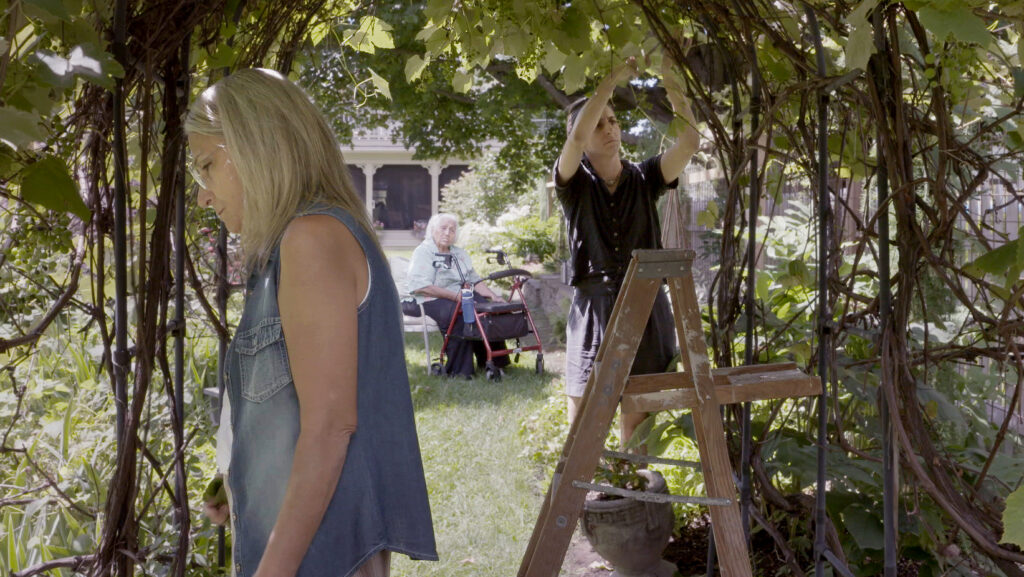Sierra Urich rew up in a small town nestled in the foothills of Vermont’s Green Mountains. Raised by her Persian mother and American-born
father, she grew up speaking English, never learning her mother’s native language. Her connection to her Iranian identity was limited to food, holidays, and old family photographs. She was four years old when she met her grandparents for the first time. She has never been to Iran.
“Joonam”is screening at the 2023 Sundance Film Festival, which runs from January 19-29.
W&H: Describe the film for us in your own words.
SU: Only knowing Iran through family stories, food, and holidays, and with the prospect of travel to the country a seemingly impossible dream, “Joonam” documents my personal journey to make sense of my fractured Iranian identity.
W&H: What drew you to this story?
SU: “Iran is too dangerous. Maybe one day the political situation will get better…”
As a child I took this family refrain at face value. Growing up in rural Vermont, my family’s memories were the only window I had to understand my cultural identity. Visiting Iran was never on the table, and because of that, I grew up without much connection to it. My father was American, my friends were American, and I was American. The fact that my mother was from “Persia,” as she preferred me to say– an ancient empire absent from modern maps– was a small detail that made me feel interesting and mysterious. For me, Iran was just food and holidays– anything more was out of reach.
“Joonam” was born out of my deep and unresolved desire to feel connected to Iran.
W&H: What do you want people to think about after they watch the film?
SU: At this very moment, Iran is on the cusp of another revolution. Young women are burning symbols of the regime, leading protests in the streets, and fearlessly fighting for their liberty and bodily autonomy. This is the biggest threat the Islamic Republic has faced since they came to power 43 years ago.
Like every other diasporic Iranian these last few months, I have been glued to my social media feed, moved by the images of rebellion and bravery coming out of the country. The longing that compelled me to make this film is the same fuel that has been simmering beneath the surface for millions of Iranians living abroad, and today we are witnessing that fuel come to a boil.
This film is an intimate window into the Iranian diaspora, and understanding the experience of our community is critical to understanding the seismic importance of what is happening in Iran right now.
W&H: How did you get your film funded? Share some insights into how you got the film made.
SU: This film was funded entirely through grants! This means two very important things. One, I was always in complete control over what this film would become. And two, many many hours were spent writing grant applications — most of which end in rejections — or participating in group fellowships, retreats, and residencies.
While there are legitimate limitations and critiques to the application process involved with most grant funding, I do believe that the process of having to continuously advocate for why your film is important or needs to be made. The fellowship experience of workshopping and critiquing your film ultimately strengthens the work, or at the very least, your own resolve.
W&H: What advice do you have for other women directors?
SU: If you find yourself about to ask a question when you actually have a statement to make – make the statement.
W&H: The film industry has a long history of underrepresenting people of color on screen and behind the scenes and reinforcing — and creating — negative stereotypes. What actions do you think need to be taken to make Hollywood and/or the doc world more inclusive?
SU: Hire people of color in positions of power. Give people of color more no-strings-attached money to make what they want to make. Refrain from giving people of color unsolicited notes.







